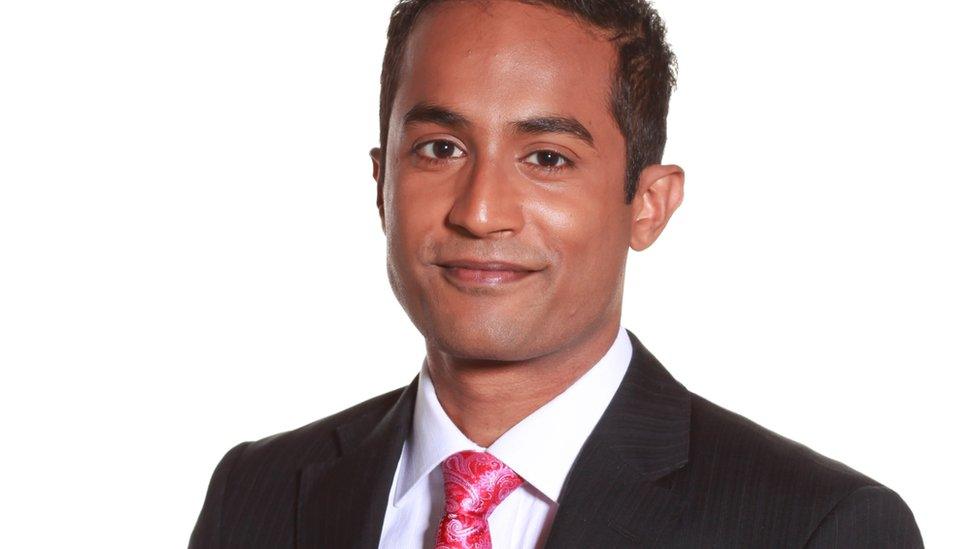Why do Australians keep wearing blackface?
- Published
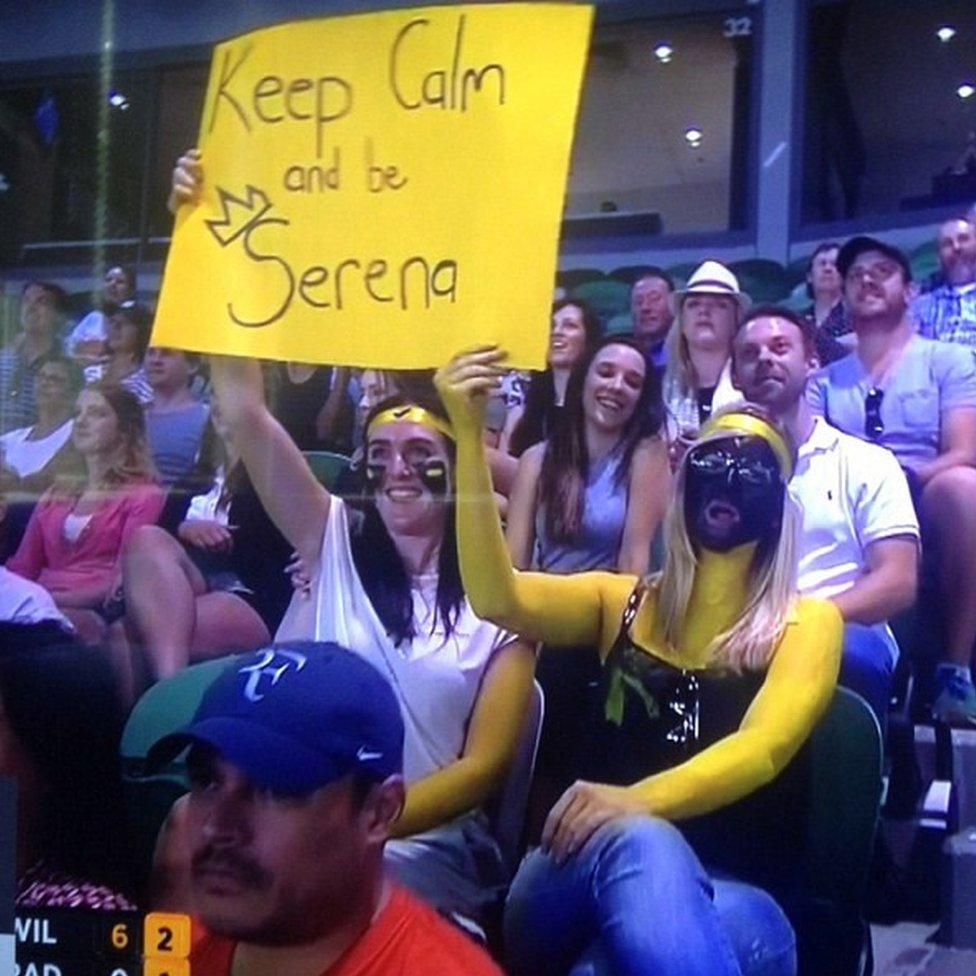
A fan supports Serena Williams while wearing blackface at this year's Australian Open
A basketball star's Kanye West party costume has reignited debate in Australia about blackface. Trevor Marshallsea investigates why Australians keep generating headlines by "blacking up".
When a spectator at January's Australian Open painted her face in an intended show of support for Serena Williams, she inadvertently captured the essence of Australia's long-running problem with blackface.
The woman was clearly a Williams fan. She had yellowed her arms and chest in imitation of the tennis star's striking outfit, and clutched in her hand a sign that read "Keep calm and be Serena". To complete the homage, her face was painted boot-polish black.
Shocked American journalists spread pictures of the fan on Twitter, leading to global news coverage and outrage. But a substantial number of Australians saw no problem at all, or believed the woman's only crime was understandable ignorance.
A spate of high-profile blackface cases has opened up a divide between Australians who believe "blacking up" is a national embarrassment, and those who believe it is "just a bit of fun".
Read more: Australia's 'blackface' makeup tutorial
This week another drama erupted amidst the Australian Opals women's basketball team's preparations for the Rio Olympics. Opals player Alice Kunek posted to Instagram a photo of herself going to a party dressed as rapper Kanye West in blackface make-up.
The picture drew a heated response from Australian team-mate Liz Cambage, a player of part-Nigerian descent, who tweeted that it had "shocked and disturbed" her.
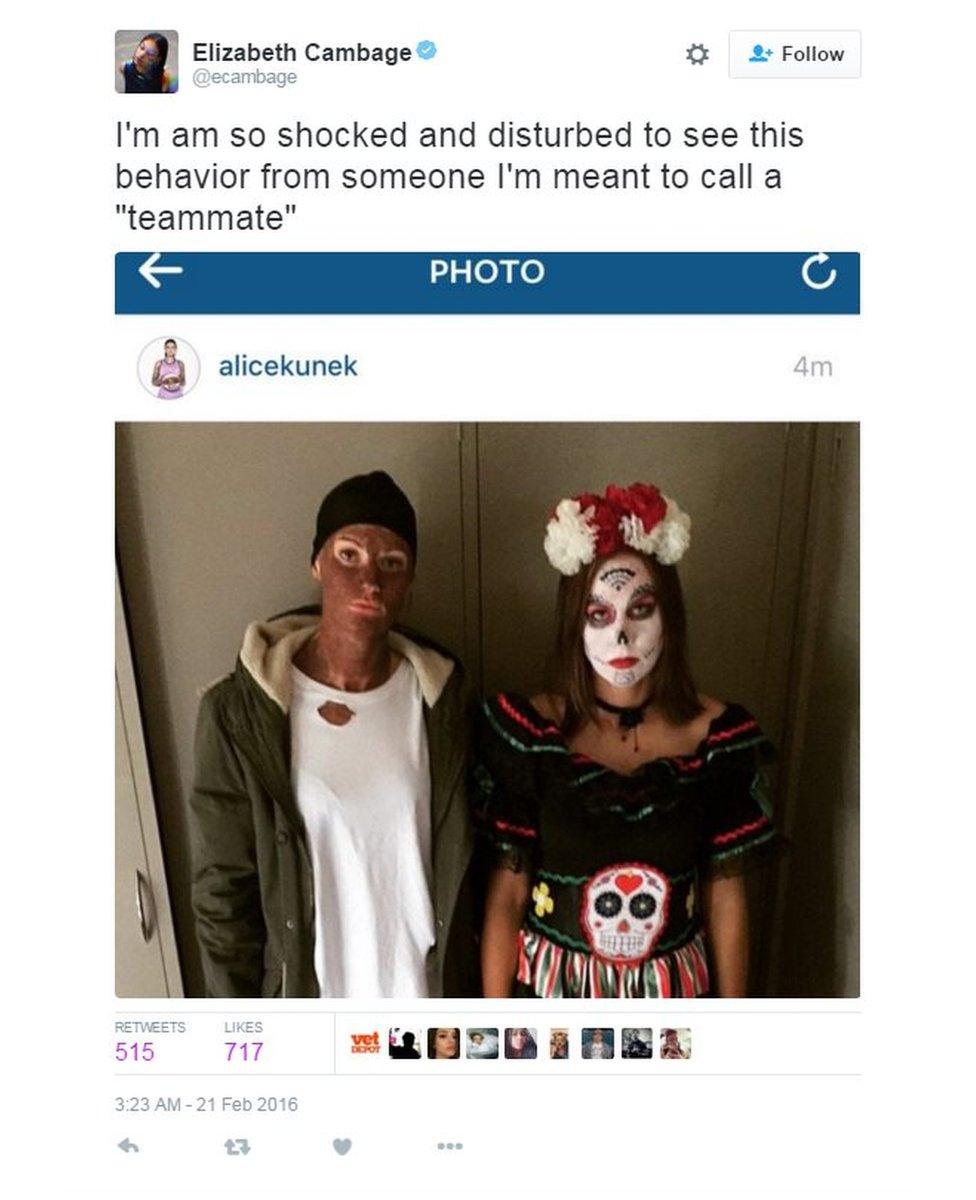
Basketballer Alice Kunek attracted the ire of a teammate after she posted this photo of herself wearing blackface to her Instagram account
While a reportedly mortified, and now enlightened, Kunek has apologised, it appears change on this particular matter comes slowly in Australia, if at all. There appears a lack of recognition that blackface make-up hurts and offends black people because it evokes historical mockery. Campaigners say excuses that blackface is less potent in isolated Australia than in the US sound increasingly hollow in a global society.
'Ignorance from distance'
This is not a uniquely Australian problem - Dutch Christmas celebrations feature the blackface helper of Sinterklaas, Black Pete, and Japanese band Momoiro Clover Z were in a blackface controversy last year - but Australian circumstances contribute to its continuance here.
"There's ignorance from distance," University of Sydney associate professor Catriona Elder, an expert in Australian cultural identity and history, told the BBC.
"Only 2-3% of Australians are Aboriginal or Torres Strait Islander. It's hard to be mean about a race if you're friends with people from that race, but most white Australians simply haven't been around Indigenous Australians.
"A lot of white Australians grew up in families or communities where casual racism is accepted, so there's an ignorance to racism there."
Of concern to Elder, anti-racism campaigners and many other Australians, both black and white, is the fiercely defensive responses which follow criticism of those playing racially-toned dress-ups. You could call it the backlash to the backlash.
These responses range from innocent-sounding pleas that blackface is harmless fun to visceral attacks on those who call out racism.
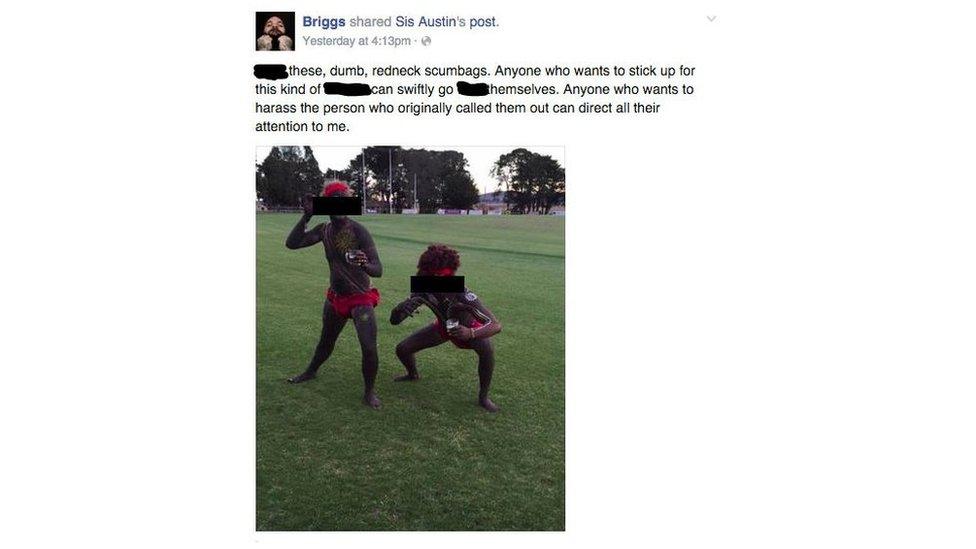
Indigenous rapper Briggs strongly criticised two men from a country city who painted their bodies black for a party
Take the social media storm that flared early in February when photos circulated of two men in the Victorian city of Ballarat who attended an "Aussie Icons" party as Indigenous Australians. They were hailed as "legends" on Facebook by the party's host, triggering fierce protests led by Aboriginal rapper Briggs.
This sparked a torrent of racist abuse for Briggs. Some people painted their faces black in solidarity with the partygoers, posting pictures with the hashtag "#wewillblackwithyou".
"It's about a resistance," Catriona Elder says. "There's a resistance from some white Australians that says they won't stop saying or doing these things that are hurtful and racist, because they think it's harmless and funny. That's the racism - a general lack of respect for another culture."
'Buffoons'
But as in the case of Serena's painted-up fan, utter cluelessness appears to play a role in many of Australia's blackface controversies.
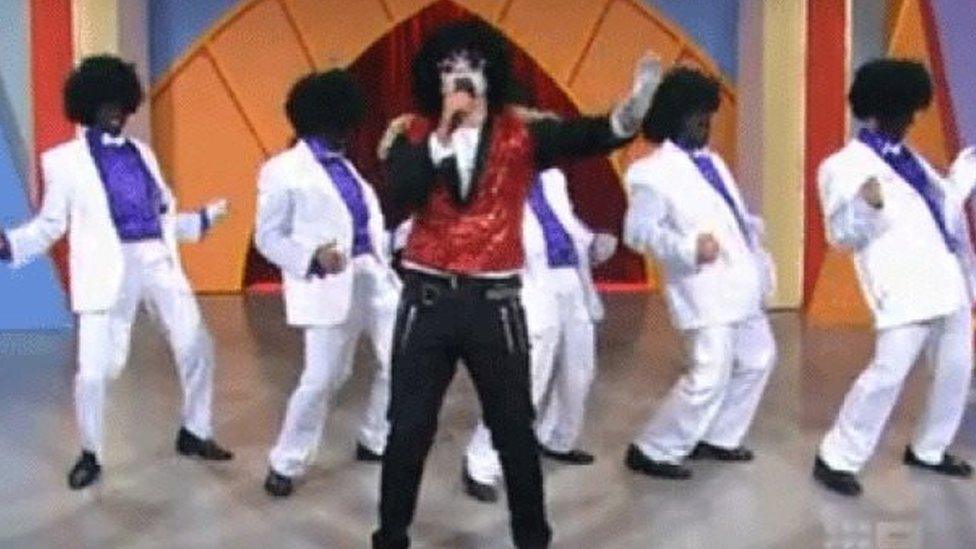
US entertainer Harry Connick Jr was openly upset when a group of performers wore blackface on Australian television
In 2009, a special revival episode of the long-running TV show Hey Hey It's Saturday featured a blackface performance by a group of medical professionals impersonating the Jackson 5. American artist Harry Connick Jnr, a guest on the show, expressed his dismay and rated the performance zero out of 10.
"Man, if they turned up looking like that in the United States…" Connick Jr said, later adding: "I know it was done humorously, but we've spent so much time trying to not make black people look like buffoons, that when we see something like that we take it really to heart."
The story took a complicated twist when it was revealed that most of the men who performed the skit were not white.
The group's leader, an Indian-born doctor named Anand Deva, said five out of six of the men came from diverse backgrounds and all were huge Michael Jackson fans.
Catriona Elder says Australia's race situation is improving, with indigenous people now having a "bigger voice to fight for their rights". However, despite all the publicity, the message on issues such as blackface make-up is evidently not sinking in.
"One of the good things about Australia is that we have legislation and policies in place that enable people who want to do anti-racism," Elder said. "But there are other people out there who feel Australia should be a white place. And how do you get someone who doesn't care, to care?"
- Published24 February 2016
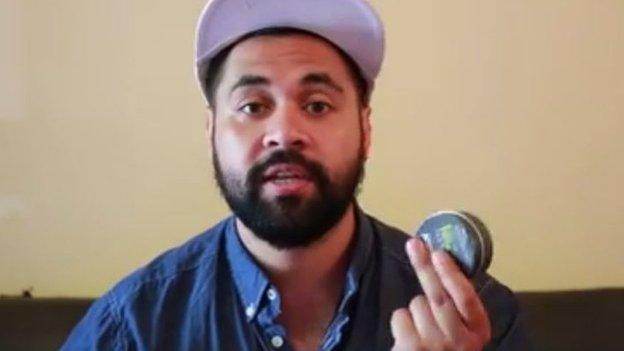
- Published16 February 2013
